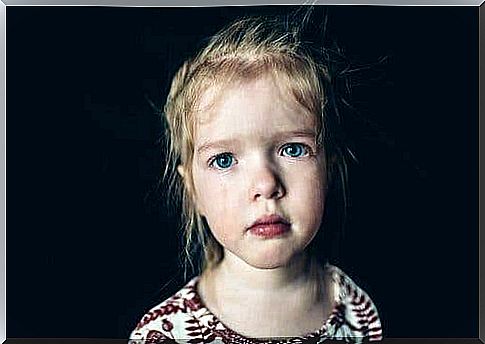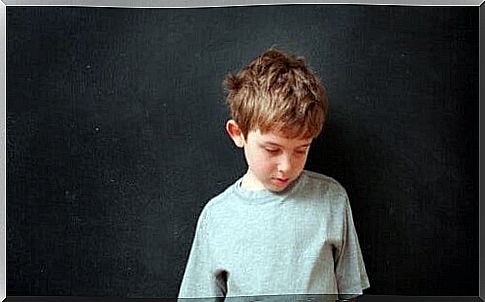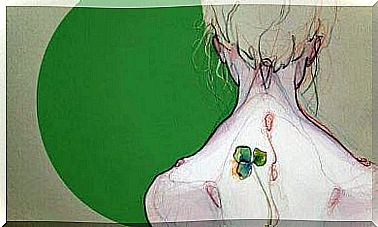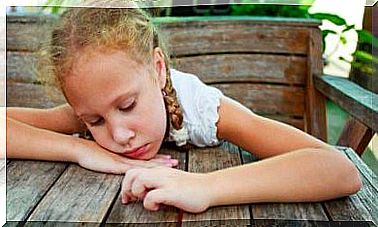The Questionnaire To Evaluate Skills And Difficulties In Children

Experts estimate that 15% of children suffer from some form of psychological disorder. However, it is difficult to detect and make precise diagnoses, since in many cases the line is often blurred between clinical symptomatology and actions and behaviors that are not signs of a disorder. This is where the questionnaire comes in.
In this article, we will talk about this excellent resource for identifying possible mental health problems in children and adolescents.
Childhood is an important stage where early detection can prevent the progression of various disorders. However, it is also a great time to build children’s strengths and skills. It is precisely for this reason that this comprehensive questionnaire shows us both children’s weaknesses and strengths.

The early detection questionnaire
The strengths and difficulties questionnaire is a screening test. This means that the goal is to discover possible conditions. Following the questionnaire, experts must verify this information and conduct a thorough assessment with other tools. However, we must say that it is a really valuable first tool.
So, what is this exactly? It is a simple questionnaire that is divided into several scales. Some of them consider difficulties, while others measure prosocial behavior. It can be used on children between four and 16 years. In fact, it has different versions that can be completed by parents, teachers or by the child even if they have the necessary cognitive maturity.
Each statement has three answer options: not true, a little true or absolutely true. Based on the answers, a score is obtained for each area that has been evaluated, as well as an overall difficulty index. The scales that make up the questionnaire are as follows:
Questionnaire to evaluate skills and difficulties in children: Emotional symptoms
- The child often complains of headaches, abdominal pain or nausea.
- They are preoccupied with many things and often seem restless or worried.
- They often feel unhappy, discouraged or crying.
- The child is nervous or dependent on others when they have to face new situations and easily lose self-confidence.
- They have too much fear and are easily intimidated.
Behavioral problems
- The child often has tantrums or is usually in a bad mood.
- They are usually obedient and usually do what adults ask them to do. *
- The child often argues with other children or teases them.
- They often lie or cheat.
- They steal things from home, school or elsewhere.
Hyperactivity
- They are restless, hyperactive and can not be at rest for long.
- They are constantly in motion and are unruly.
- The child is easily distracted ; the concentration tends to fade easily.
- They think things through before they do them. *
- They finish what they start and have good concentration. *
Problems with peers
- The child is a more lonely person and tends to play alone.
- They have at least one good friend. *
- The other kids usually like them. *
- The other children tease them or make fun of them.
- They get along better with adults than with other children.
The questionnaire for evaluating skills and difficulties in children: The prosocial scale
- They take into account other people’s feelings.
- They often share with other children.
- The child offers help when someone is hurt, upset or ill.
- They treat younger children well.
- They offer their help to parents, teachers or other children.

Interpretation of the questionnaire
When experts evaluate the questionnaire, they only take into account the first scales (not the section on prosocial behavior). They get a “degree of difficulty” by taking the answers into account and this will determine if a more in-depth exploration is necessary due to the detection of an anomaly in the child’s profile.
The score is achieved as follows, statement after statement:
- “Not true” is worth zero points.
- “A little true” is worth one point.
- “Absolutely true” is worth two points.
On those marked with an asterisk, the reverse is true : “false” is two points, “slightly true” is one point, and “absolutely true” is zero points.
If a child has a score of 16 or more, experts consider that the child has some kind of emotional or behavioral problem and that a thorough evaluation is necessary. Thus, this questionnaire is useful among all children, either at school or at a check-up.
In this way, experts will be able to detect possible conditions that otherwise could not have been identified and capture them early. This will allow them to make an appropriate assessment and diagnosis, leading to appropriate treatment. As a result, it minimizes the effects of the disorder, slows the course, and prevents future problems.









